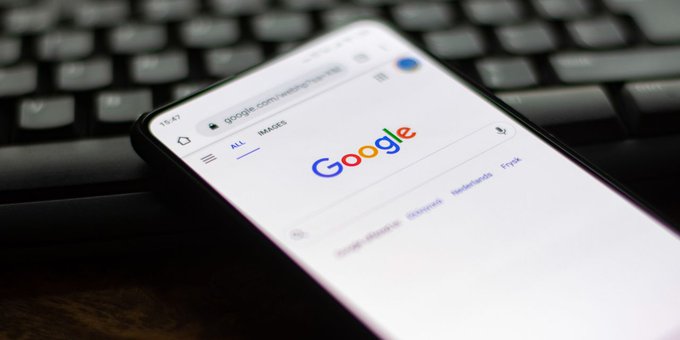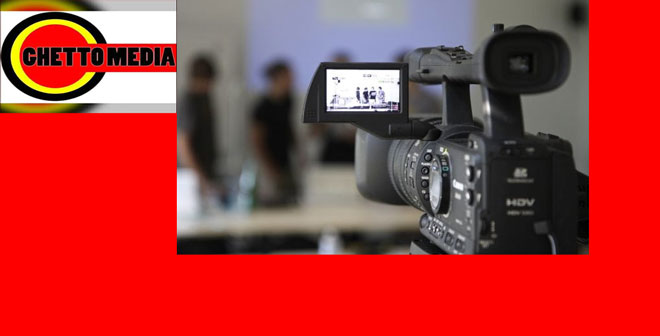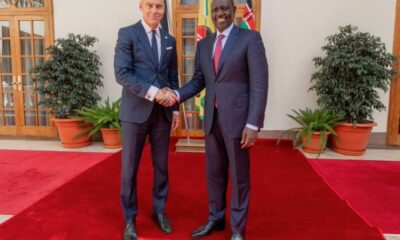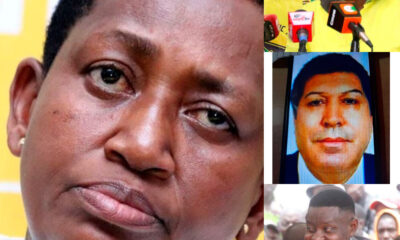Sci & Tech
Google Responds To Museveni’s Request To Delete YouTube Channels That Criticizes Him

Google has responded to the Uganda Communications Commission (UCC).
The head of Communication and Public Affairs for Africa at Google, Dorothy Ooko has said “it is very hard to just have a channel removed due to a government request.”
That was her quick and brief response to a letter by Uganda Communications Commission (UCC) requesting Google to take down 17 YouTube accounts that have largely been publishing or live-streaming content from presidential candidate Robert Kyagulanyi’s campaign trail.
The channels that UCC is targeting have been gaining traction because of the content they publish, most of which is enhancing Kyagulanyi’s messages. They had more than 59 million views and 300,000 subscribers as of December 15, when URN analyzed YouTube stats of the said channels.
In a letter dated December 9, 2020, to the Chief Executive Officer Google Inc, UCC said that the YouTube channels it listed violated Ugandan laws and that the continued broadcast by the channels might cause economic sabotage and compromise Uganda’s national security.
UCC says, without evidence detailed in the letter, that most of the channels were used to mobilize riots that resulted in loss of lives. UCC also accuses the YouTube channels of reporting news in a sensational, unbalanced and unprofessional manner.
“The broadcasts contain gruesome pictures including pictures of dead bodies, wounded victims of attacks and accidents, in a manner likely to cause public anxiety. Glorifies lawlessness and undermines public interest, confidence in the law and its enforcement in Uganda,” the letter reads.
But for YouTube channels to be removed, Ooko said, the governments have to submit court orders. “We always follow local law, but it would have to be a valid court order. The letters just show what the UCC submitted to the Embassy; they are not court orders,” she said.

A transparency report on YouTube community guidelines indicates that the site does not allow pornography, incitement to violence, harassment, or hate speech, and relies on a combination of people and technology to flag inappropriate content and enforce these guidelines. It adds that a YouTube channel is terminated if it accrues three warnings in 90 days, has a single case of severe abuse, or is determined to be wholly dedicated to violating the entity’s guidelines.
“Flags can come from our automated flagging systems, from members of the Trusted Flagger program (NGOs, government agencies, and individuals) or from users in the broader YouTube community,” the page reads.
The request to have the channels removed in the middle of a presidential campaign in which Kyagulanyi has leveraged the use of online platforms has been viewed as an attempt to limit online space for the musician turned politician, according to lawyers.
“This is political, it’s not about business or registration,” Robert Kirunda, a lecturer at Makerere University says. “UCC gagged mainstream media and they thought that once you control radio and TV and say don’t air Bobi Wine rallies, you have solved the problem,” he added.
But he argues that the complexities came when Bobi Wine supporters started using online channels to broadcast his messages. These channels are hard to regulate, Kirunda says because when you shut down a page, another will be created in minutes, and the process continues.
Kirunda adds that Google’s response to UCC will be informed by two factors: If there is evidence that the channels that UCC is requesting to be removed violate YouTube community standards, and if they violated Uganda law.
As someone who has acted for @Facebook in the TVO case in Ireland, I can confirm that the sites cited in the @UCC_Official letter haven’t violated any community standards or haven’t been found by a court of law to have done so. The letter is thus a fuss over nothing but prejudice pic.twitter.com/1VbqizT7bh
— Nicholas Opiyo (@nickopiyo) December 15, 2020
Human rights lawyer, Nicholas Opiyo says UCC’s attempt is meant to restrict the use of YouTube, a popular alternative platform for politicians such as Kyagulanyi who are denied access to mainstream media.
Nicholas Opiyo says that the letter by UCC is indicative that it doesn’t understand how big-tech companies such as Google operate. “You can’t cite the UCC act and claim that these big tech companies are in violation of these laws,” he says. Opiyo says companies such as Google can act on the basis of legitimate court orders.
Opiyo also argues that UCC should know that YouTube and other big tech companies are not policemen of content that doesn’t violate community standards on their platform. Such content, he says, doesn’t include legitimate political concerns.
Abdul Salam Waiswa, the head of Legal and Compliance at UCC, told URN yesterday that these channels have not registered as required by the law. UCC early this year directed all online publishers to register.
Both Opiyo and Kirunda say it doesn’t require the intervention of Google to have the platforms register.
“Without going to google, there are enough laws in this country that you can use to go after someone who is not registering. You don’t need to go to Google,” Kirunda says.
Kenya Insights allows guest blogging, if you want to be published on Kenya’s most authoritative and accurate blog, have an expose, news TIPS, story angles, human interest stories, drop us an email on [email protected] or via Telegram
-

 Grapevine2 weeks ago
Grapevine2 weeks agoA UN Director Based in Nairobi Was Deep in an Intimate Friendship With Epstein — He Even Sent Her a Sex Toy
-

 Development4 days ago
Development4 days agoKenya Strips Dutch Climate Body of Diplomatic Immunity Amid Donor Fraud Scandal and Allegations of Executive Capture
-

 Investigations1 week ago
Investigations1 week agoHow Mexico Drug Lord’s Girlfriend Gave Him Away
-

 Business2 weeks ago
Business2 weeks agoSafaricom Faces Avalanche of Lawsuits Over Data Privacy as Acquitted Student Demands Sh200mn Compensation in 48 Hours
-

 Investigations2 weeks ago
Investigations2 weeks agoHow Close Ruto Allies Make Billions From Affordable Housing Deals
-

 Entertainment2 weeks ago
Entertainment2 weeks agoKRA Comes for Kenyan Prince After He Casually Counted Millions on Camera
-

 Business1 week ago
Business1 week agoAmerican Investor Claims He Was Scammed Sh225 Million in 88 Nairobi Real Estate Deal
-

 Investigations1 week ago
Investigations1 week agoTalanta Stadium Construction Cost Inflated By Sh11 Billion, Audit Reveals



















